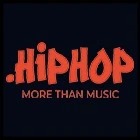- Joined
- Apr 5, 2005
- Posts
- 9,729
- Reaction score
- 1,311
(Wasn't sure which forum this fitted into, so I've popped it in "General")
I'm seeing more and more posts in the sales forums where an exact-match number is quoted for a domain name with 1+ hyphens in it.
At the point that you add a hyphen, the domain's not an exact match any more! Google doesn't treat hyphenated and non-hyphenated domains in the same way... and while it's possible to find examples of hyphenated domains that rank well, they do so despite of, not because of, the hyphen.
I'm seeing more and more posts in the sales forums where an exact-match number is quoted for a domain name with 1+ hyphens in it.
At the point that you add a hyphen, the domain's not an exact match any more! Google doesn't treat hyphenated and non-hyphenated domains in the same way... and while it's possible to find examples of hyphenated domains that rank well, they do so despite of, not because of, the hyphen.


















